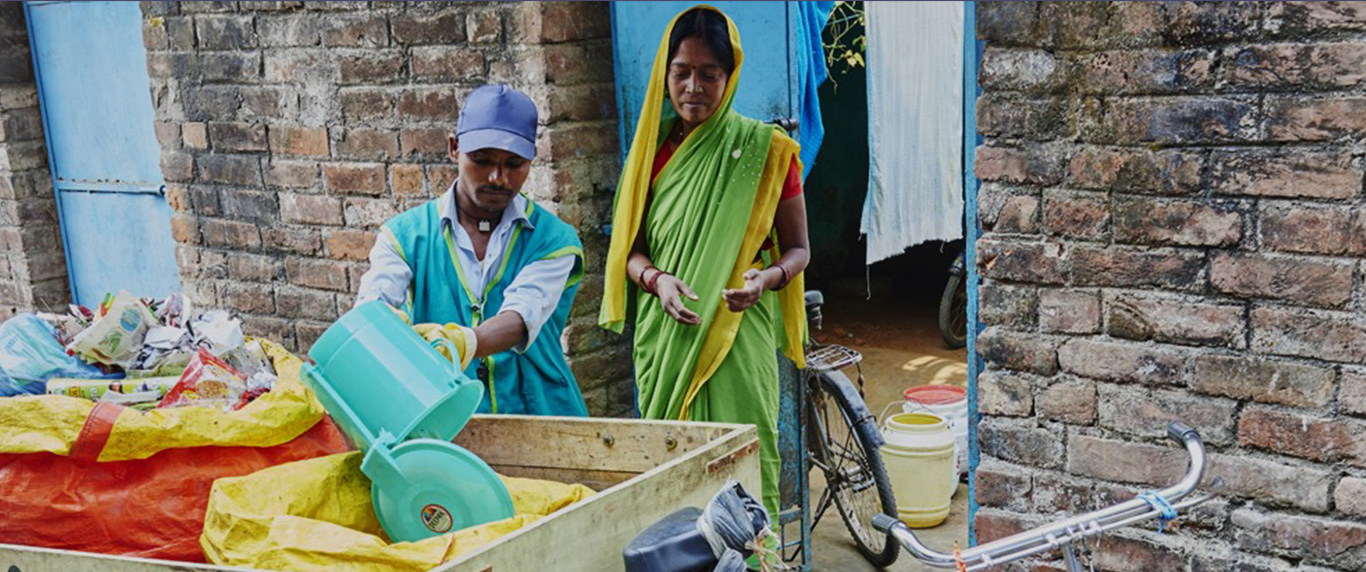
Resources are limited. Therefore, optimal utilisation of resources is critical since any wastage is not only an avoidable cost but also compounds the nature's need to regenerate.
At ITC, we are dedicated to promoting circularity and waste management. Serving national priorities, our efforts are also aligned with the nation's Swachh Bharat Mission to create a cleaner and more sustainable environment. ITC takes a holistic approach towards enabling the circular economy by focussing on the entire waste value chain. We are continuously innovating to minimise waste in our operations, improve recyclability, optimise packaging and develop sustainable alternatives to plastics. Beyond our operations, we have also focused on management of post-consumer plastic packaging waste by evolving sustainable and scalable solutions based on the principles of a circular economy.
Waste generation, particularly plastic waste, has soared steeply in India, which mostly make their way to landfills, posing a serious public health risk and environmental hazard while contributing to increasing GHG emissions. At ITC, we have implemented innovative, sustainable, replicable and scalable management solutions to tackle the solid waste challenge, including plastic waste. Our initiatives promote source segregation through behavioural change programmes and ensures higher collection and recycling of solid wastes including multilayered laminates/plastic packaging.

Our flagship waste recycling programme, Well-Being Out of Waste (WOW), fosters the creation of a clean & green environment while promoting sustainable livelihoods for waste collectors.
WOW has created various waste management models tailored for small and medium towns as well as metro cities. Its unique source-segregation-and-collection pathway re-consumes waste to support a circular economy. By raising awareness about the importance of source segregation and recycling, it also fosters behavioural change. Moreover, WOW has enhanced livelihoods of waste handlers and rag-pickers and created opportunities for social entrepreneurs. The initiative is present in Bengaluru, Mysuru, Hyderabad, Coimbatore, Chennai, Delhi, major towns of Telangana and several districts of Andhra Pradesh.
ITC has signed 15 MoUs with local bodies for Waste Management